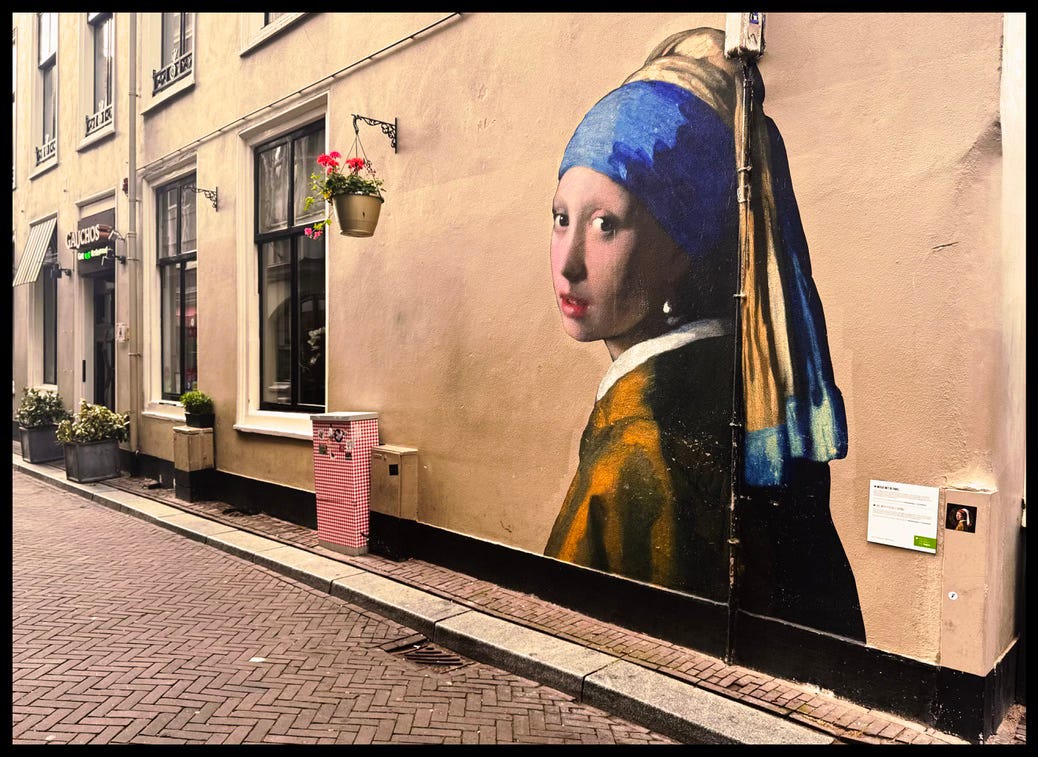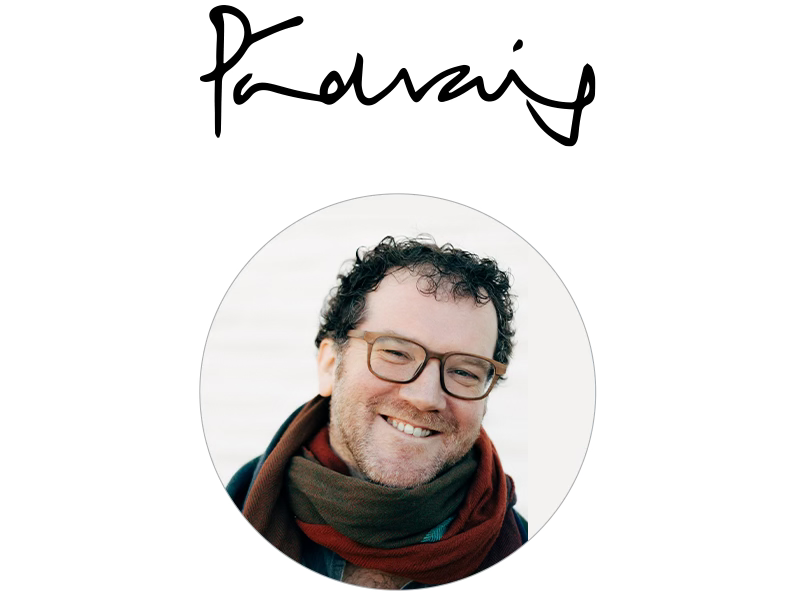
Discover more from Poetry Unbound
Dear friends,
I think it is a truth that the older we get, the more we begin thinking about time. As a twelve year old, I heard my uncle say “That was 20 years ago” as part of a conversation, and I repeated it to myself over and over. To have the capacity for memory that stretched back 20 years … this seemed strange to me.
Last week, a friend visited from Ireland. In the course of meeting friends in New York, the usual kind of questions are asked: How long have you fellas been friends? Twenty-five years.

Of course, these small decades are mere milliseconds when it comes to the question of time. Time is not only personal; it is also civic. In a peculiar way, the story of time — and in particular, I think I mean the story of the past — presents itself as an economy. The one who can purchase the story of the past has some rhetorical power over the present.
Emily Dickinson had a deep interest in time. This is one of my favourites:
The Past is such a curious Creature To look her in the Face A Transport may receipt us Or a Disgrace — Unarmed if any meet her I charge him fly Her faded Ammunition Might yet reply.
From Emily Dickinson’s Poems: As She Preserved Them (Harvard University Press, 2016), edited by Cristanne Miller.
The brilliant Cristanne Miller notes that this poem was on Sheet 89, from 1872. I love how Emily Dickinson speaks of the past as a living “creature” with interests “curious.” If you look at the past, it might “Transport” us or “Disgrace.” This, then, is a way of saying that the past has multiple things to say. The second stanza operates like a warning: “I charge him fly.” Chrisanne Miller’s edited collection of Emily Dickinson’s poems is so valuable because she preserves the alternative words that floated around the page of each composition. So it is entirely possible that, at one point, this poem’s ending was imagined as:
Her Rusty Ammunition Might still — destroy —
I don’t think this is a warning to avoid looking at the past. It is a warning that the past has things to say, that it can inflict wounds on the certitudes we may wish to impose on it.
I am curious (see what I did there?) what associations occur in your mind as you look at this poem. What questions occur to you, what transports, disgraces, fears, or replies?
Poetry in the World
A list of events: Online, in the US (Durham, NC; New York City, NY), and the Scottish island of Iona
PS: I’ve got two books coming out in early 2025 — Kitchen Hymns and 44 Poems on Being with Each Other. You can pre-order them wherever you buy books.
November 18–19 Durham, North Carolina, US
I’m giving the William Preston Few lecture at Duke University. Details here.
December 8, 4–5.30pm Eastern Time, Online
To mark the week of Rilke’s birthday, the very good Mark Burrows is once again gathering people for a 90-minute chat about the beauty and brilliance of Rilke’s work. Myself, Mark, and Krista will each share some of our favourite poems from that magnificent poet. You can register here.
January 10–11, New York City, New York, US
I am giving a two-day seminar at Union Theological Seminary titled “You you you” that looks at prayer and poetry. Please note that this is in person only, not hybrid. You can find out more details and register here.
March 10–15 and March 18–23 2025, Isle of Iona, Scotland
I’m holding two Poetry Unbound retreats on the gorgeous Scottish island of Iona; each retreat is the same. Both retreats are booked up, but you can get on the waiting list by contacting the folks at the St. Columba here.
Subscribe to Poetry Unbound
Open your world with poetry

















My middle brother, with whom I have a difficult past, shared an evening with me last night, the first time he'd visited me at my home in decades (because I usually see him in our home state). Warmed and emboldened by some bourbon, I began to ask about his memories of our old neighborhood, and the wild -- really, quite feral -- upbringing we had in the woods of Kentucky.
We approached the topic tentatively, as we do most discussions of the past, having shared so much beauty and horror both, yet interpreting them differently, sometimes in baffling and hurtful ways. We reminded each other of neighbors long forgotten, as well as injuries both physical and psychic, along with memories of the magical acres we explored -- free to wander at ages 5 and 6 and 7! -- in the caves and gulleys and woods and bottomlands.
I suppose the liquor "unarmed" me -- and my question unarmed him -- but this time we approached the topic with curiosity and kindness, maybe a benefit of having reached our fifth decade together? I was well pleased that old ammunition of "this is my truth" had faded and we simply existed in each other's wisdom, acknowledging that both warp and weth create the fabric of life.
Yes, the past has things to say. I often feel ambushed by a memory of something my younger self did or said, and feel a tremendous wave of regret and shame and sorrow. I'm not talking about serious crimes, but of the everyday failures of presence and wisdom that are common in the young. In my case, because I was so young when my children were born, I feel that they were the ones who suffered from my selfishness and immaturity. Learning to forgive myself and have compassion for that young girl is an on going challenge. I am trying to be open to the snipper fire from the past, to have a more expansive view, to remember the good times, to learn what I need to learn from the past so that I can live more in the present.